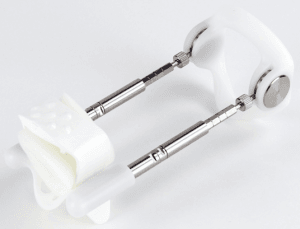Nephrologist vs. Urologist
A good number of people often confuse the services of a urologist from those of a nephrologist because both medical professionals deal with health conditions associated with the kidney. The services they offer often overlap.
The most important difference between the two is that a nephrologist focuses on conditions that directly affect the kidney while a urologist mostly deals with conditions affecting the female and male urinary tracts.
What does a nephrologist do?
A nephrologist can also be differentiated from a urologist in the sense that he/she is more knowledgeable about how dysfunction or disease in the kidneys can cause damage to other parts of the human body. However, unlike urology, nephrology is NOT a surgical specialty.
The services that nephrologists provide patients include the following:
- They prescribe medications for those suffering from kidney diseases and hypertension.
- They perform dialysis treatments. They also make evaluations on whether the patient is required to undergo a kidney transplant.
- They monitor the balance of electrolytes and fluids in the body.
- They monitor the blood pressure of patients.
That said, a person is advised to seek a nephrologist if he is suffering from acute kidney failure, electrolyte imbalance, hypertension, chronic kidney disease, and chronic infections of the urinary tracts.
What does a urologist do?
A urologist is a medical doctor with a wide range of medical specialties. These revolve around the diagnosis and treatment of kidney and urinary system conditions and illnesses. The urologist also has the added responsibility of diagnosing and treating disorders in the reproductive systems of men.
Not surprisingly, the urologist treats conditions occurring in the urethra, ureters, adrenal glands, testes, seminal vesicles, epididymis, bladder, kidneys, penis, prostate, and vas deferens.
Common illnesses that may require a person to seek the services of a urologist include the following:
- urinary bladder problems
- ureter conditions
- kidney stones
- adrenal problems
- urinary tract infections
- anatomical kidney defects
- conditions of the male reproductive organs
Summary
To summarize, nephrologists specifically deal with illnesses that concern the kidneys and their capabilities to function, such as kidney failure and diabetes. To treat these disorders, they prescribe nonsurgical medical treatments.
On the other hand, urologists treat urinary tract conditions. Particularly complications that have been affected by the patient’s kidneys. For example: kidney stones, kidney cancer, kidney blockages, and obstruction. Furthermore, they are qualified to conduct surgery as well as perform outpatient medical procedures.
For the best interest of patients, nephrologists and urologists usually work together, especially if the patient has overlapping conditions.






